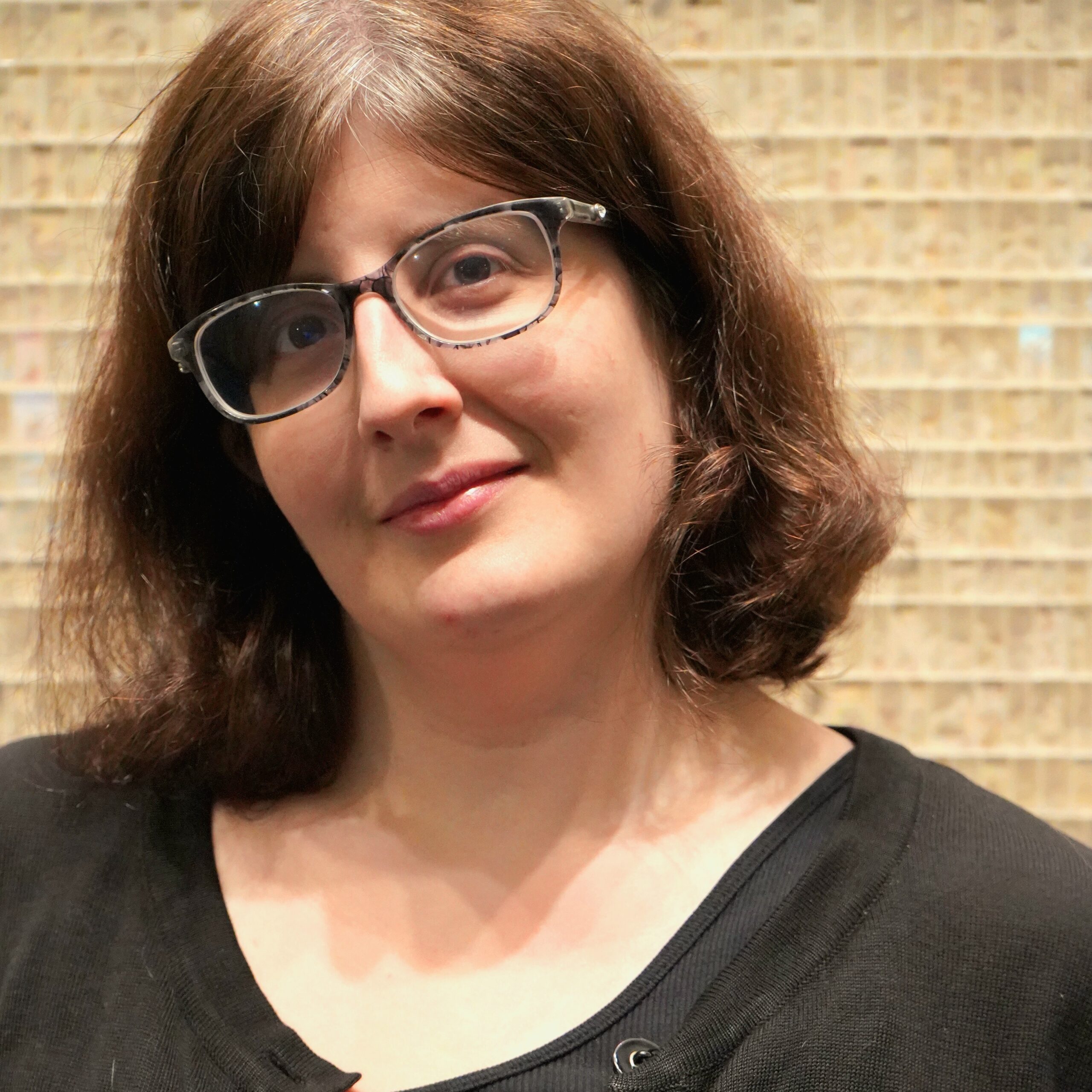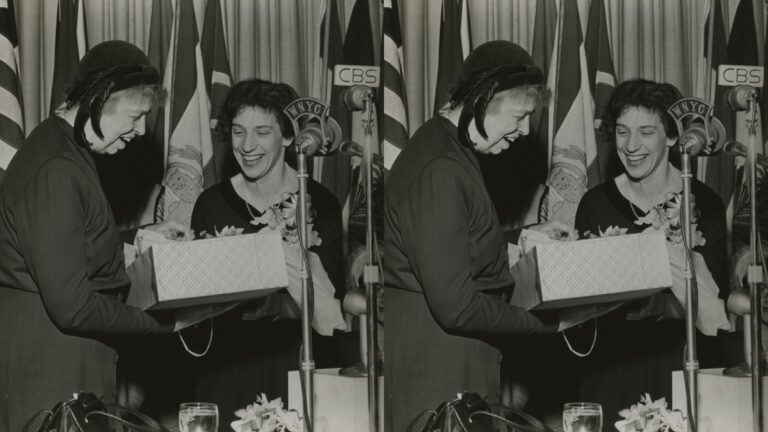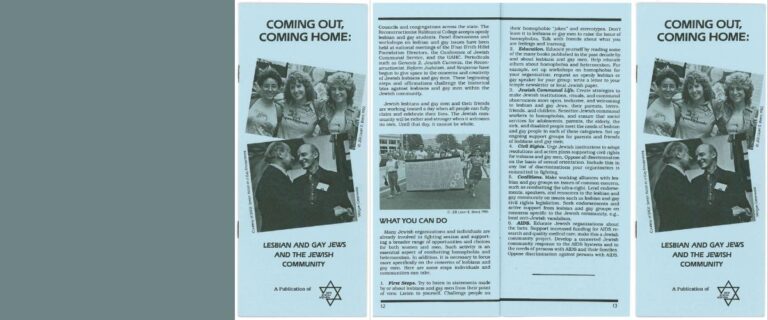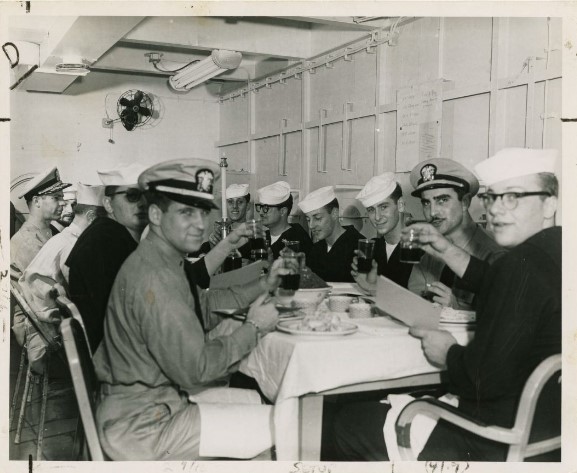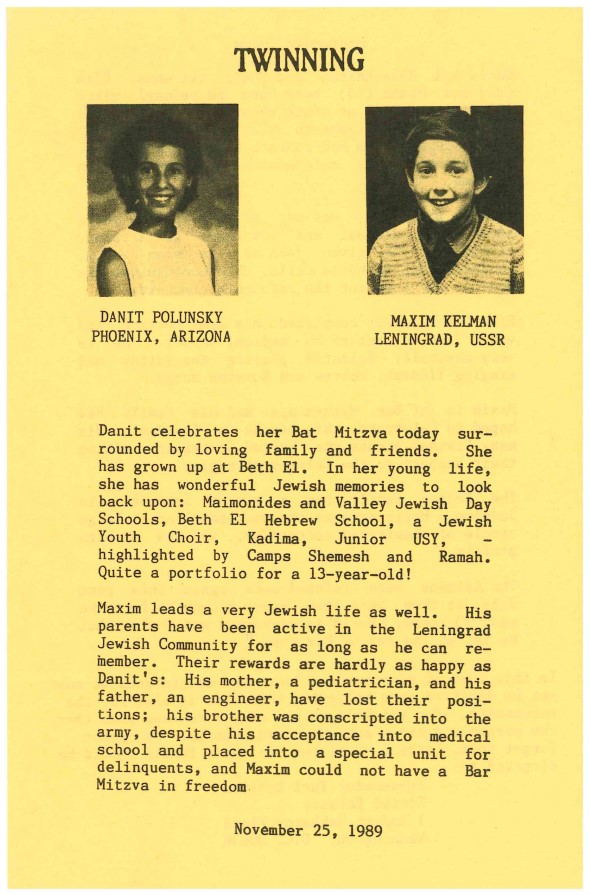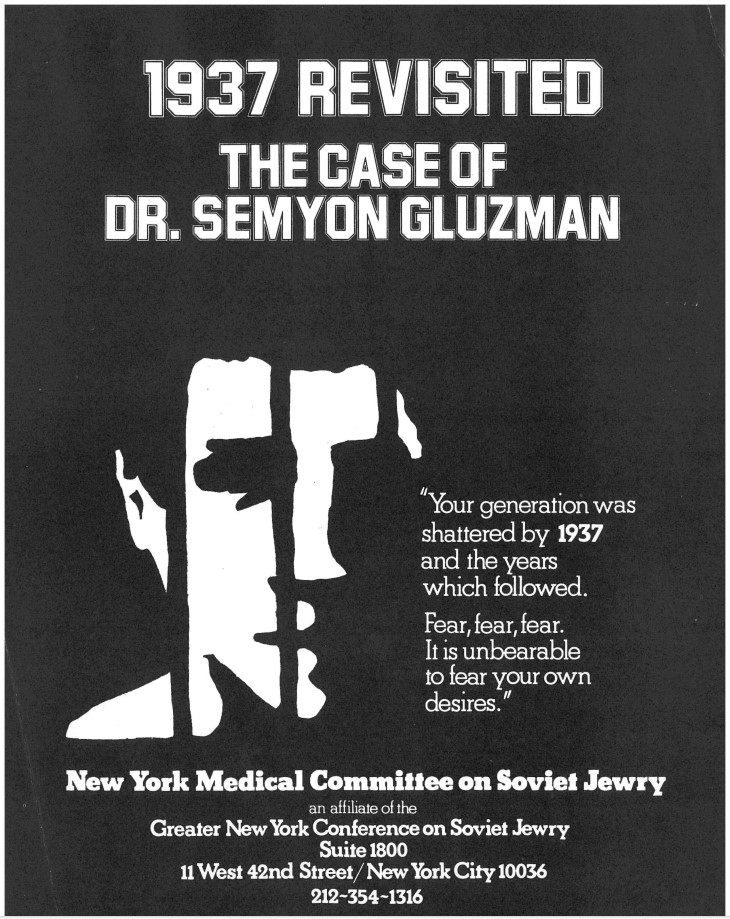From the Greater New York Conference for Soviet Jewry
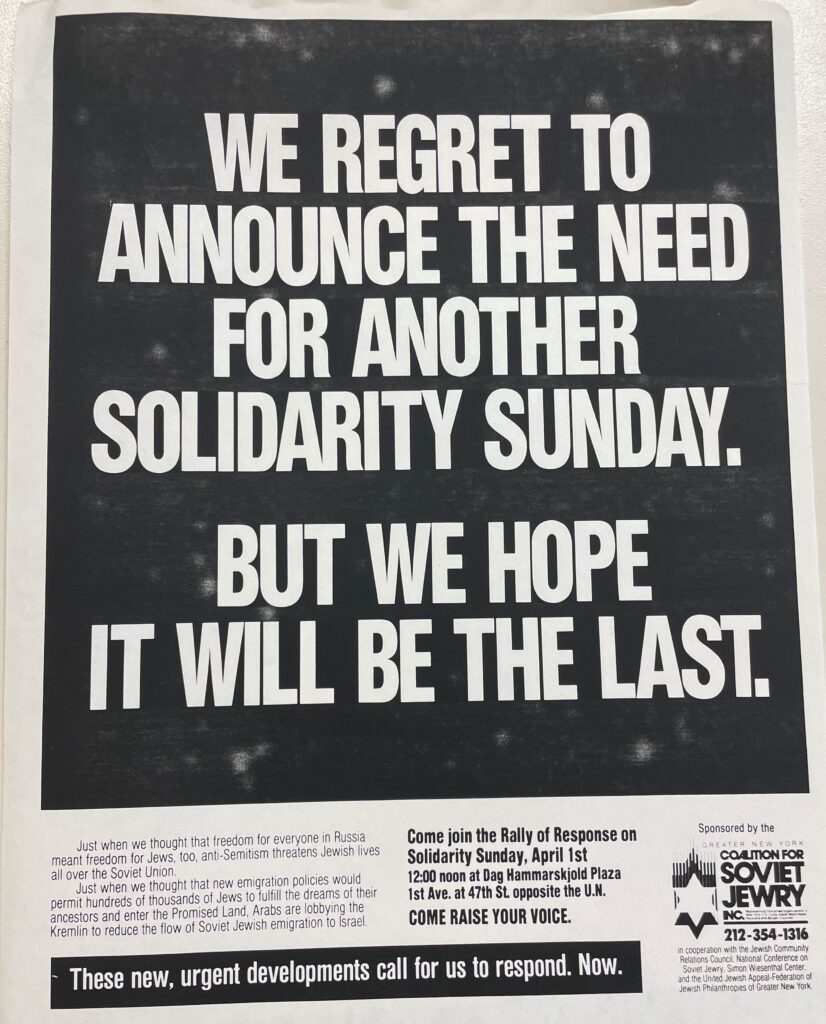
The Greater New York Conference for Soviet Jewry is a non-profit organization that had worked since the 1970s to advocate for the freedom of Jewish people held prisoner in the Soviet Union. These individuals were denied emigration (often to Israel) for exaggerated reasons like knowing “state secrets,” especially punishing Jewish people in higher-education roles like physicists and engineers, and splitting up families, and leaving Jewish people to be socially ostracized, fired from jobs or expelled from educational institutions, and leaving them trapped for years on end under they would receive permission to emigrate. It wasn’t until the late 1980s Gorbachev administration period of glasnost and perestroika and the end of the Cold War in 1991 that many more Soviet Jews were given permission to emigrate and travel on their own free will.
The archive collection contains administration records, financial records, photographs, and many reports and profiles of Soviet Jews, labeled “refuseniks” by the Soviet government for being refused emigration visas. There are also numerous fliers and pamphlets of protests in NYC on behalf of Soviet Jews, with the American Jewish community advocating for their freedom as fellow Jewish people, comparing the situation to that of the Holocaust, Stalin regime, and Russian persecution of Jewish people of decades past.
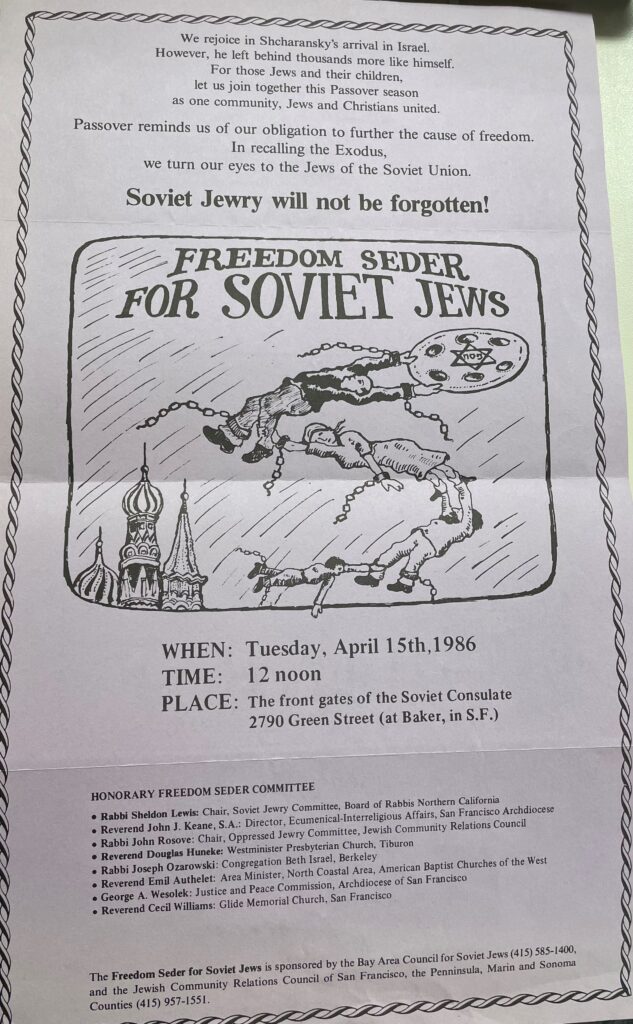
Examples of the protests include the Rally of Response on Solidarity Sunday, the event pictured held at the Dag Hammarskjold Plaza near the United Nations in New York City. As Deputy Director of the American Jewish Historical Society Melanie Meyers wrote in her blog post on the collection, ““Solidarity Sundays” for Soviet Jewry, the GNYCSJ’s impactful series of annual mass demonstrations in New York City, attracted hundreds of thousands of attendees and served as a model for similar demonstrations nationwide, culminating in the milestone “Freedom Sunday” national march in Washington, D.C. on December 6, 1987. “Freedom Sunday” was attended by 250,000 people and deemed the largest Jewish rally ever held in the United States.” All this support was for Soviet Jews to know that they were not forgotten and that their allies in the United States were pushing Ronald Reagan and Mikhail Gorbachev to end the Cold War to let them be free of tyranny.
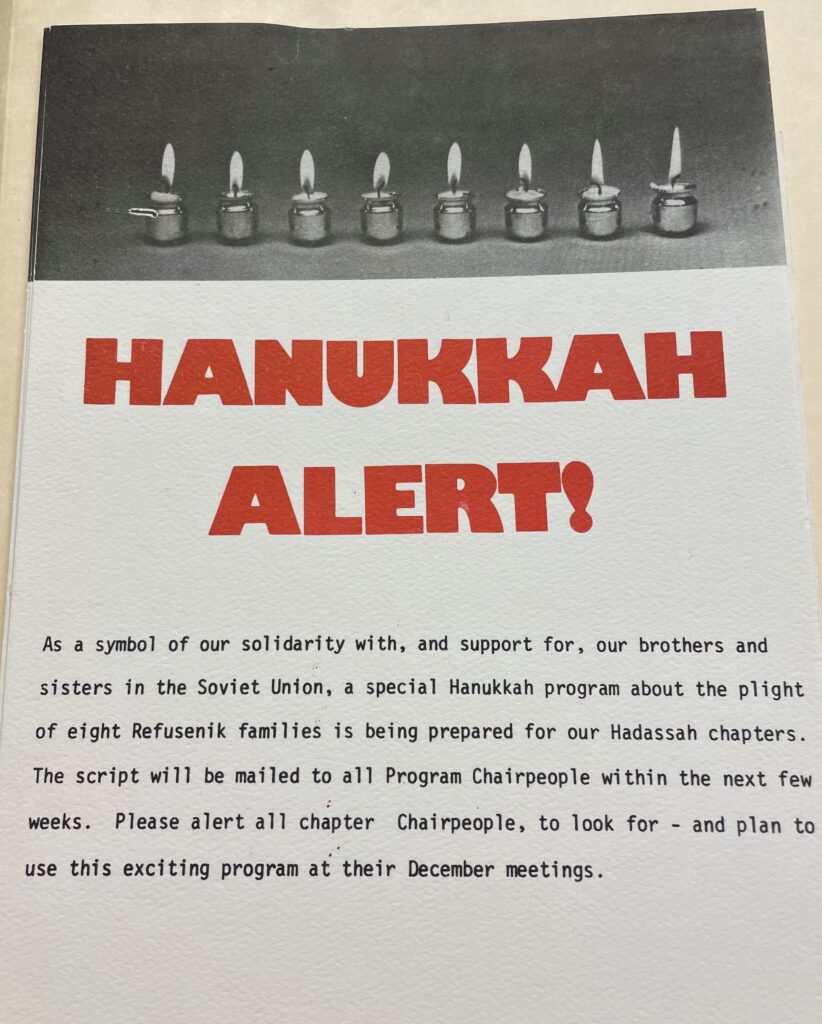
The organization also combined celebrating Jewish holidays with activism for Soviet Jewry, celebrating holidays like Pesach (Passover), Purim, and Hannukah, holding a Freedom Seder for Soviet Jews or a Hannukah program dedicated to several Refusenik families to sponsor and support. The organization both celebrated Jewish pride and culture while also pushing for activism to ensure that Jewish people all around the world are free and safe to practice their religion and culture.
AJHS gratefully acknowledges the support of the National Historical Publications and Records Commission in processing and making available these historic materials.

